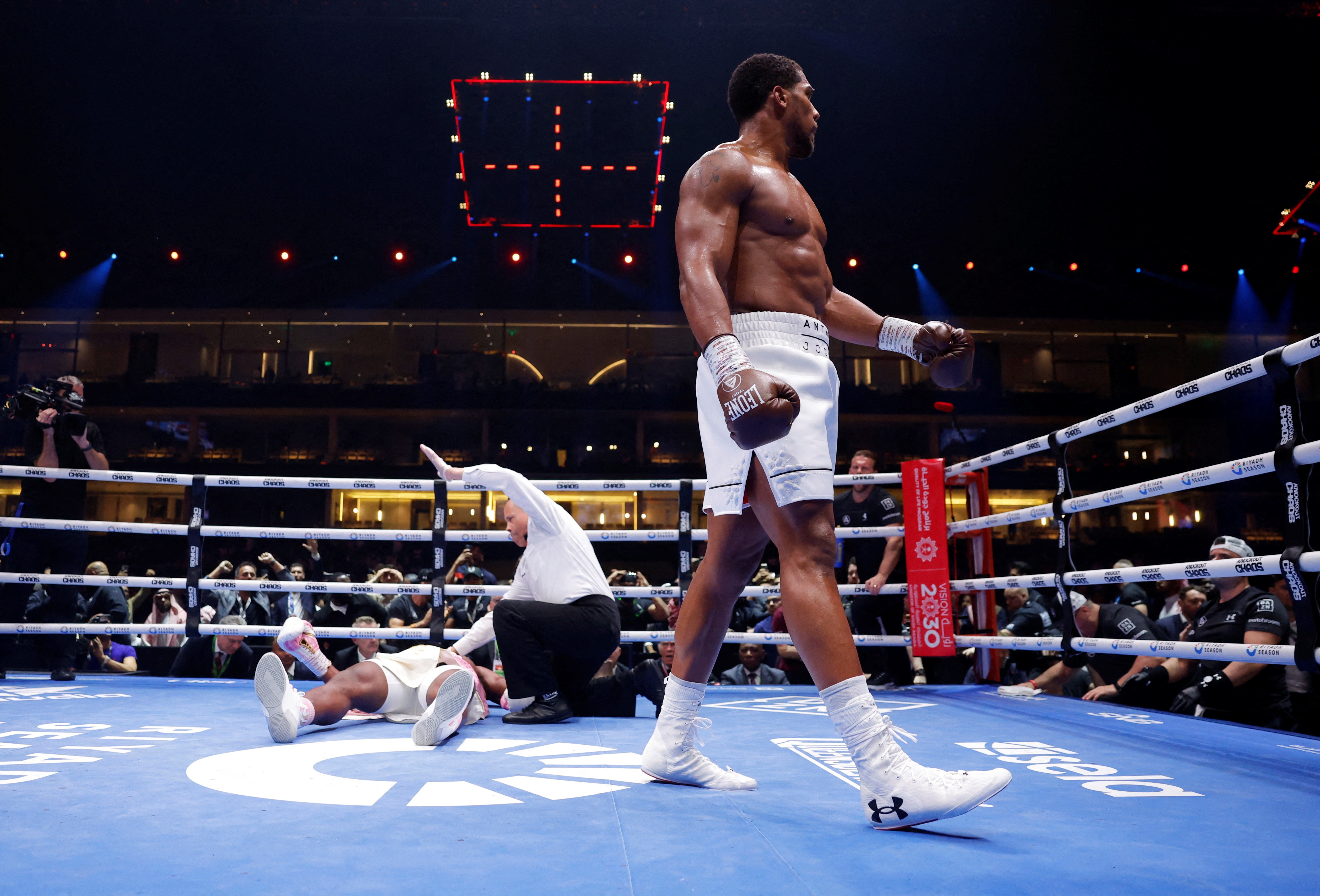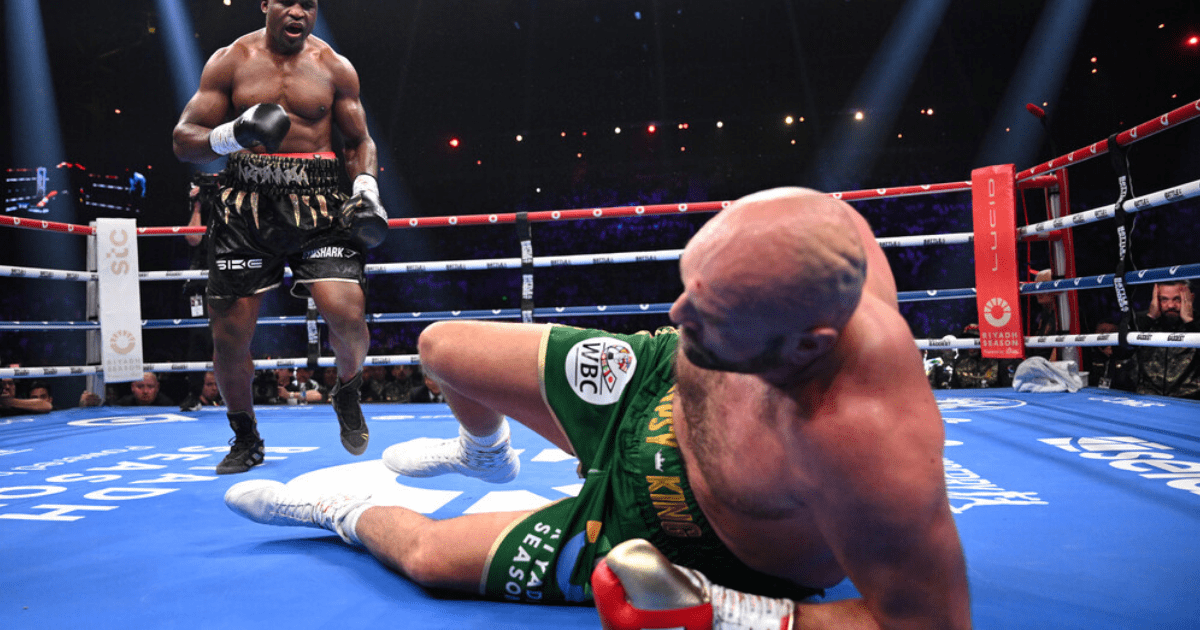Decline of Tyson Fury?
Former world super-middleweight champion Carl Froch has raised doubts about Tyson Fury's current form after Anthony Joshua's knockout of Francis Ngannou. Froch believes Fury may be past his prime due to recent performances.
Fury's Performance Analysis
Froch pointed out the differences in Fury's recent fights, highlighting a decrease in feints and footwork. He expressed concerns about Fury getting knocked down multiple times and not displaying the same level of skill and activity as before.
Usyk Fight Uncertainty
With Fury scheduled to face Oleksandr Usyk in an upcoming title bout, Froch questions if the fight will even take place. He speculates that Fury may not be fully committed to the sport anymore and could potentially struggle against Usyk.
Potential Outcomes
Froch predicts that if the Usyk fight happens, Fury might face a tough challenge and could potentially lose on points or through a late stoppage. He believes Usyk's size and speed could pose problems for Fury, who he thinks is past his prime.

Frequently Asked Questions
Can anyone learn to box professionally?
Even though boxing may be accessible to all, not everyone is cut out to compete professionally. Professional boxing requires a unique blend of talent, physical abilities, mental toughness, and dedication. Prospective boxers also need to be willing to accept the inherent risks associated with the sport. A thorough examination by a trainer is a good way to determine whether or not someone has potential for a boxing career.
What are the dangers of professional boxing?
As with any contact sport there are inherent risks in professional boxing. They include acute injuries, such as cuts and bruises, broken bone, head trauma, and potential chronic conditions caused by repeated impacts, such concussion syndromes, or neurological disorders. While proper training, safety equipment and compliance with boxing regulations can reduce the risks, they will never be eliminated. Accepting and understanding these risks are essential to choosing to box professionally.
What does it take to start training for professional boxing?
For someone to train professionally in boxing, they need to be disciplined, physically fit and willing to learn. Initial training involves mastering the fundamentals, including stance, footwork, punches, and defensive techniques. It’s imperative to join a reputable boxing gym with experienced trainers who understand the nuances of professional competition. Beginner boxers are usually subjected to a strict regimen of technique drills, conditioning and sparring before they consider competing.
How do amateurs progress to professional boxers?
Transitioning from amateur to professional boxing entails a significant step up in competition, training intensity, and mental preparation. An amateur boxer is required to establish a record of success, usually by honing their skills at local and national contests. A professional boxing licence is essential, as are experienced managers and coaches who can help guide your career and secure professional bouts.
How important is physical fitness in professional boxing?
Professional boxing requires a high level of physical conditioning. Sport requires high levels strength, speed endurance and agility. Professional boxers must engage in a tailored fitness program that includes aerobic and anaerobic exercises, strength and resistance training, and flexibility workouts. A boxer’s performance in the ring and ability to train is severely compromised without superior physical conditioning.
How do boxers keep their weight in check and manage their weight classs?
Boxers manage their weight by adhering to strict diets and precise training regimens. Nutritionists will help develop a weight loss plan for boxers that is based on their goals and doesn’t compromise nutrition or training energy. The importance of regular weight check-ins and regular exercise is crucial, especially in the run up to a fight. Weight management involves a strategic approach that, if not performed correctly, can result in health problems and/or poor performance.
What kind of diet should a novice boxer follow?
A novice should consume a diet with a balance of nutrients that supports intense workouts, and promotes recovery. The general recommendation is to eat a combination of carbohydrates and proteins for energy. Lean protein helps repair and grow muscles, while healthy fats are good for your overall health. It is also important to consume vitamins and minerals as well. Consulting a sports nutritionist to develop a diet plan that is tailored for the boxer’s weight class and training schedule can be beneficial.
Statistics
- A study showed that most professional boxers have spent more than 4 years in training before their first professional bout.
- Professional boxers typically train 4 to 6 hours per day, 5 to 6 days a week, depending on their fight schedule.
- Approximately 80% of professional boxers start their career in the amateur ranks before transitioning to the professional level.
- Nutrition experts emphasize that over 70% of a boxer’s diet should focus on carbohydrates and proteins for energy and recovery.
- Research shows that a boxer’s reaction time is typically under 0.25 seconds, honed through repetitive drills and sparring.
- On average, a professional boxer spars between 100 to 200 rounds in preparation for a major fight.
- Reports suggest that successful professional boxers can earn upwards of 50 times more than the median purse for entry-level professionals per fight.
External Links
precisionstriking.com
usaboxing.org
proboxing-fans.com
teamusa.org
wbcboxing.com
ibhof.com
sweetsciencefitness.com
How To
How to Find the Best Boxing Gym for Professional Training
Choosing the correct boxing club is crucial for a smooth transition from amateurs into professionals. Ideal boxing gyms should have trainers who are familiar with professional boxing. It should offer a variety of training equipment and a ring for sparring. Assess the gym’s culture and environment; it should be motivating and focused on improvement. Consider the gym’s track record of producing professional boxers and whether they offer personalized training plans tailored to your goals and current skill level.
Did you miss our previous article…
https://www.sportingexcitement.com/boxing/jake-pauls-girlfriend-jutta-leerdam-flaunts-bikini-body-after-romantic-getaway/

